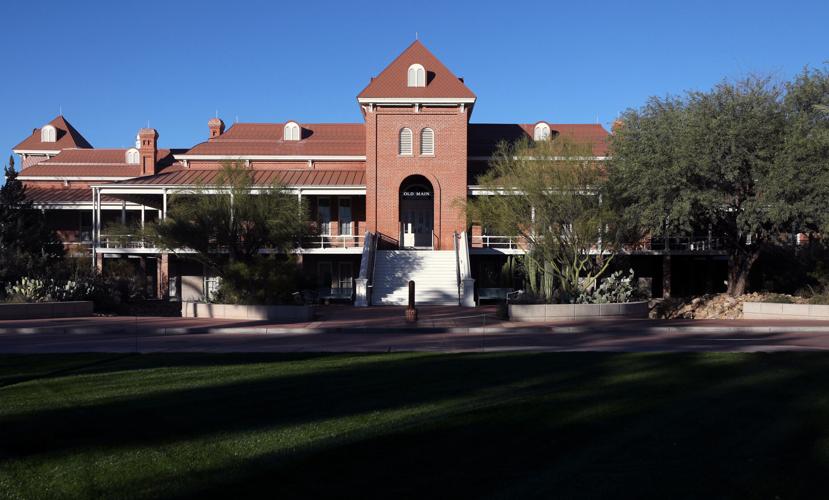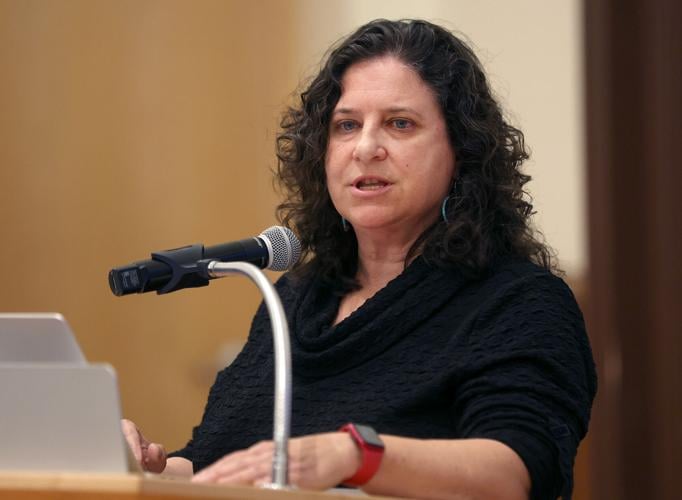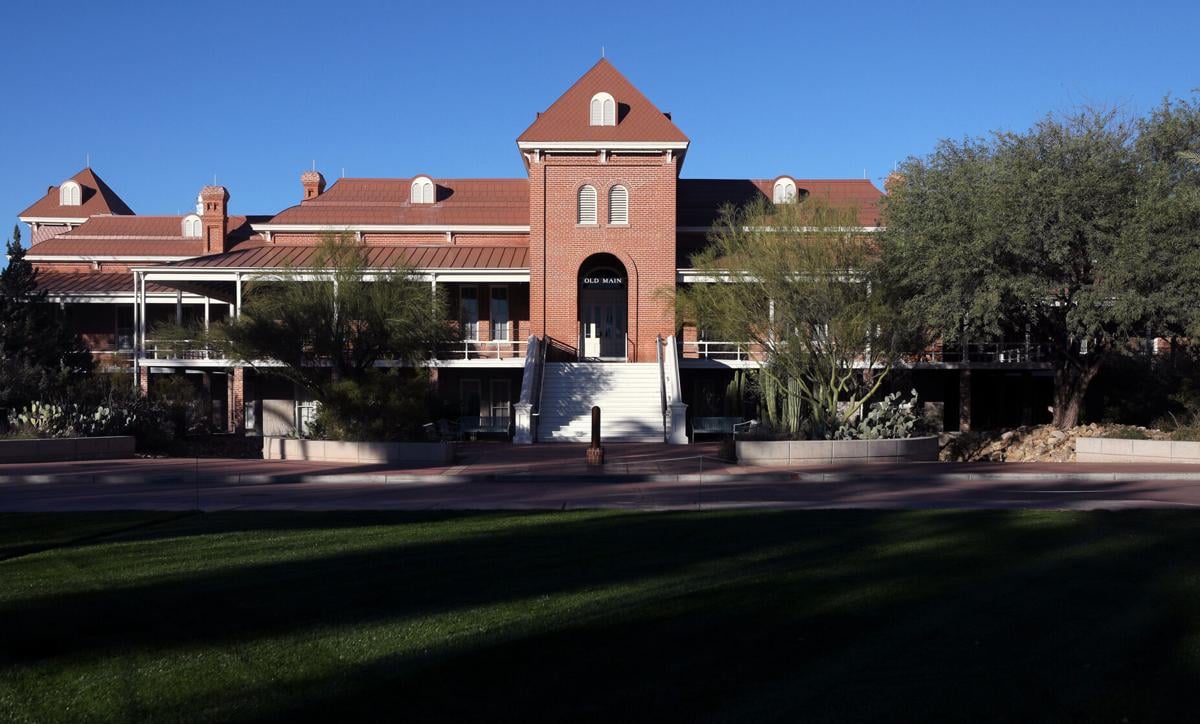Faculty at the University of Arizona voted overwhelmingly in favor of three referendums demanding delays in layoffs below the level of deans, reinvestment in academics, controlling of central administration spending and downsizing of senior administration jobs.
Faculty Senate Chair Leila Hudson said 1,330 of the 5,189 eligible faculty members voted, a 26% participation rate. They could vote in favor, against, or abstain on each of the referendums. The measures were introduced at a Faculty Senate meeting last week and then presented to a vote by the entire faculty amid the UA’s budget deficit, personnel cuts and leadership transitions.
“This information helps us represent the faculty more effectively and accurately as we work with old and new administrations to restore trust, preserve and bolster our institutional reputation and repair the financial damage of the management crisis,” Hudson wrote in an email to all faculty Tuesday announcing the results.
A UA spokesperson, Mitch Zak, responded, “We value and appreciate the input of faculty and staff across the University and will consider these recommendations within the existing financial action plan process.”
Budgeting/spending
The first referendum question, which Hudson wrote affirms “a transparent budgeting system that centers the academic mission and effectively controls central administrative spending,” passed with 94% of respondents, or 1,252 faculty, agreeing.
Forty-two faculty voted against the referendum, while 36 abstained.
The exact language of the referendum is as follows:

Faculty Senate Chair Leila Hudson
“We believe that a new budgeting system should serve our students and academic mission by prioritizing, supporting and incentivizing academic units and their core teaching, research, extension/outreach and service activities; establishing expenditure controls on central administration; and ensuring the timely access of faculty, staff and students, including their elected representative bodies, to detailed data about budgets and past patterns of expenditures.”
Faculty representation
According to Hudson, question two, which passed with 92% of the vote, or 1,218 faculty, endorses a “commitment to democratically elected faculty representation in shared governance.”
Sixty-one faculty voted against the measure, while 51 abstained. The exact language of the referendum is:
“The democratically elected representatives and elected bodies of the faculty of the University of Arizona should have a guiding and determinative role in the academic and intellectual shape of the institution. We are critical to teaching students, conducting research and engaging in extension/outreach in pursuit of our core values. The proper responsibility of the faculty includes active involvement in the hiring of administrators to implement our values and ensuring their accountability to the university and its public purposes.”
Layoffs
The final question, Hudson wrote, affirms a “moratorium (pending compelling financial clarity) on the personnel cuts to the working faculty and staff who directly execute and support the academic mission and serve our students.”
Eighty-two percent of the faculty, or 1,088 people, voted in favor, while 121 voted against the measure and 121 abstained. The exact wording of the referendum is:
“Until there is detailed, transparent and clear financial data and guidance on financial rules, we demand that the senior administration of the university and colleges delay any cuts to personnel at any level below the Deans, as these personnel are most central to serving our students and academic mission.”
What’s next?
It isn’t entirely clear what the results will mean. University leadership does not have to oblige by any of the votes.
Hudson, in an interview with the Arizona Daily Star, said the data “confirms that the faculty are quite largely of a single mind on a couple of key issues.”
She added that each referendum question gives the Faculty Senate “the data to back up” the proposals and policies they’ve been pushing for.
“While it is something we have assumed until now, it’s nice to have 92% of the respondents weighing in and saying elected representation does reflect our values as a community,” she said. “It’s not enough for the administration to handpick members of the faculty who may or may not have been elected and call that proper representation.”
Hudson clarified that she was speaking about the newly formed University Advisory Council, which was handpicked by senior leadership, and the presidential search advisory committee, which she has previously said should’ve been voted on. UA President Robert C. Robbins has announced he will leave the post by June 2026 or sooner if a successor is in place.
As for next steps, Hudson said the university is at a “transition point” and she’s thinking more about the “incoming administration” including incoming Provost Joseph Glover and the eventual new university president.
“This will help us give them a better picture of who the university is and what we stand for and what we are willing to work hard for over the long term,” she said. “That’s only going to help our collaboration if we make it clear to an incoming administration that none of these propositions are radical in any way.”
Zak, the UA spokesperson, said, “President Robert C. Robbins and Interim Chief Financial Officer and Senior Vice President for Business Affairs John Arnold acknowledge and appreciate the essential role that every faculty and staff member plays at the University of Arizona.
“They understand the frustration that arises from the difficult budgetary decisions that need to be made. While the central administration, divisions, and colleges all play a part in advancing our core mission of teaching, research, and outreach, the majority of the budget cuts aimed at saving $110 million in the upcoming year will come from reduced administrative expenses. We value input from the entire university community and will continue to work collaboratively and transparently to implement our financial action plan.”
Get your morning recap of today's local news and read the full stories here: tucne.ws/morning





